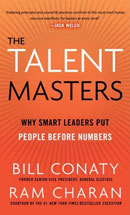Competing on Service: Eleven Ways to Beat the Competition by ‘Hugging’ Your Customers
The U.S. economy is still in a deep funk, and for many small business owners that means business isn’t exactly booming. Forced to do more with much less, the small businesses that have managed to survive and even thrive during these tough times have recognized one important factor: You can’t always compete on price, but you can compete on service. And the best thing about great customer service is that providing it doesn’t cost you an extra penny.
When your competition is scrounging for customers, you have to hold yours close, and that starts with great customer service.
Today’s small business owners need to understand that cutting costs will not save their business. Remember, customers are concerned about their own financial security. When they walk into a business, they need to feel cherished and special. They need to be ‘hugged’ by great customer service. Customers don’t expect to get bottom-of-the-barrel prices everywhere they go, but they do expect to be treated with respect.
Great customer service doesn’t just happen. It starts with employees who have been trained in the science of service.
Hi there! This article is available for free. Login or register as a StrategyDriven Personal Business Advisor Self-Guided Client by:
Subscribing to the Self Guided Program - It's Free!
About the Author


 StrategyDriven Podcasts focus on the tools and techniques executives and managers can use to improve their organization’s alignment and accountability to ultimately achieve superior results. These podcasts elaborate on the best practice and warning flag articles on the StrategyDriven website.
StrategyDriven Podcasts focus on the tools and techniques executives and managers can use to improve their organization’s alignment and accountability to ultimately achieve superior results. These podcasts elaborate on the best practice and warning flag articles on the StrategyDriven website.
 John Maxwell, author of
John Maxwell, author of 
 The socialization of medicine is not a new discussion. Indeed, government involvement in healthcare has increased for decades. Regardless of the noble intentions of those desiring ‘healthcare for all,’ economics reveals that in the end everyone suffers.
The socialization of medicine is not a new discussion. Indeed, government involvement in healthcare has increased for decades. Regardless of the noble intentions of those desiring ‘healthcare for all,’ economics reveals that in the end everyone suffers.